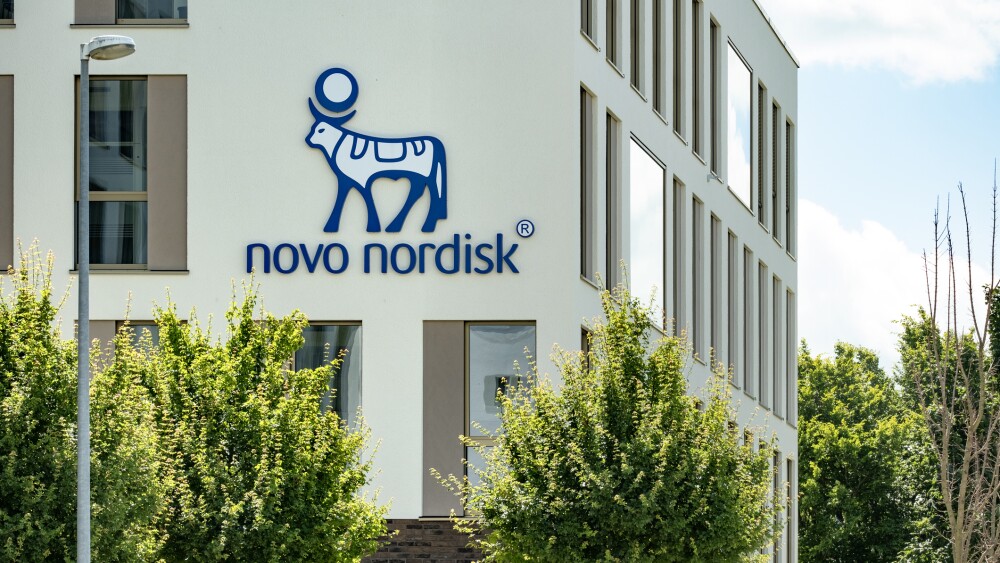Projects include rapid, culture confirmed tests for different mycobacteria, including tuberculosis, and impact studies on developing antimicrobial peptides for superbug treatments and combating biofilm formation
Symcel: 08 November 2016: Symcel, the company behind the revolutionary cell-based assay tool for real-time cellular bioenergetic measurements, calScreener™, has partnered with TiKa Diagnostics and St. George’s University of London, for the use of its microcalorimetry technology in testing mycobacteria and for antimicrobial peptide (AMP) studies. The rapid detection of antimicrobial resistance is now crucial to maximize efforts in controlling the prevalence and spread of drug resistant Mycobacterium tuberculosis (Mtb). Moreover, the development of novel agents, such as AMPs, able to combat superbugs and interfere with biofilm formation, has become a key necessity.
The project between Symcel and TiKa Diagnostics, a spin-out from St. George’s University of London, has the potential to enable rapid Mtb culture confirmation, reducing detection time to just two to six days rather than the average 12 to 14 day timespan required using conventional culture testing techniques. Furthermore, faster detection will provide an increased scope for accurately predicting optimal antibiotic treatments for patients. Symcel’s novel detection system will be combined with TiKa Diagnostics’ new method of sample preparation and mycobacterium growth enhancement – overcoming the main challenges that impede the use of mycobacteria in clinical diagnostics.
Symcel’s calScreener™ is the world’s first multi channel micro calorimetry system for antimicrobial susceptibility testing. The technology, which measures heat for accurate diagnostics, is 1000 times more sensitive than fluorescence which enables the much faster detection. TiKa Diagnostics has discovered a compound able to speed up growth of slow growing pathogenic mycobacteria in cell culture, increasing recovery rates, test sensitivity and reducing contamination levels from 20% to just 1%.
One calScreener machine has been installed at a BioSafety Category 3 facility at TiKa Diagnostics. The technology is being tested for use in detection and anti-microbial susceptibility testing of Mycobacterium tuberculosis, the cause of tuberculosis in humans, Mycobacterium bovis, the cause of tuberculosis in cattle that can sometimes be passed to humans, and Mycobacterium avium subspecies paratuberculosis (MAP), the cause of Johne’s Disease in cows - reducing their milk production and reproductive capabilities.
Symcel’s technology has also been installed at a Biosafety Category 2 facility at St. George’s University of London that is dedicated to the development of new drug treatments that work specifically on multi-drug resistant bacteria. calScreener™will be used to study antimicrobial peptides (AMPs) and their interaction with superbugs. It will also test the surface modification of plastics to prevent biofilm formation and the capability of AMPs to cause the destruction of existing biofilms.
Magnus Jansson, Chief Scientific Officer at Symcel remarked: “By utilising our calScreener assay, it is possible to more accurately measure the surivival rates of superbugs – overcoming the problem of it often being unclear whether cells are alive or dead. Moreover, our technolology enables the live, real-time monitoring of the metabolic state of superbugs.”
Christer Wallin, CEO of Symcel commented: “We are delighted to have partnered with TiKa Diagnostics and St. George’s University of London for research into these critically important fields. Indeed, we look forward to working with them to show the beneficial impact of our calScreener™ technology and calorimetry approach for highly efficient, highly accurate and fast detection of antimicrobial resistance”.
Dr. Kai Hilpert, Director, TiKa Diagnsotics, said: “We are very pleased to have the opportunity to work with Symcel and to provide a new research model in the field of antimicrobial susceptibility testing – one which combines our novel substance with their innovative technology. We are confident that this is set to provide the healthcare market with a solution that will enable patients to obtain the right treatment faster. It is also likely to enable a greater proportion of patients suffering from tuberculosis to receive a confirmational diagnosis using direct bacterial cell culture.”
For media enquiries, please contact Tristan Jervis or Alex Heeley at De Facto Communications on +44 (0) 203 735 8166.
Notes to Editors
Public Health England Paper published in 2014 showed that 40% of all reported clinical cases of mycobacterium tuberculosis could not be culture confirmed.
SymCel website address: http://www.symcel.se/.
About SymCel
SymCel provides a novel cell-based assay tool for real time cellular bioenergetics measurements. SymCel is a privately held biotechnology company located in northern Stockholm Sweden, a region well known for high tech telecom and med-tech industry development.
SymCel was founded by Dr Dan Hallen and Prof. Ingemar Wadsö in 2004. The founders have an extensive background in the field of calorimetry measurement and technology development. The current research team at SymCel has extensive experience of multiple disciplines within the biotechnology industry as well as the pharmaceutical development industry.
SymCel develops and markets analytical instrumentations that fulfil an unmet need for cell biological research and development, within R&D departments of the Life Science industry, as well as academic research laboratories. Our solution is a fast label-free assay technology providing real-time continuous data monitoring of cell metabolism.
About TiKa Diagnostics
TiKa Diagnostics Ltd is a spin out company from St George’s University of London. The company was founded 2014 by Dr Tim Bull and Dr Kai Hilpert. TiKa Diagnostics Ltd has invented a new patented test able to confirm the diagnosis of Tuberculosis (TB) in adults and children significantly faster, with greater sensitivity and with less contamination than has been previously possible. The company has demonstrated that using the new culture system, they can grow the bacterium that causes TB much faster and from a wider range of types of samples. The new enhancing products can be easily incorporated into existing routine clinical laboratory methods. This innovation will help doctors make faster, more informed decisions on tuberculosis treatments. This will lead to improvements in the efficiency of care, better rationalisation of the cost for hospital stays and help to stop the spread of disease. In addition, TiKa Diagnostics Ltd has invented a patented test able to confirm the diagnosis of Mycobacterium bovis and Mycobacterium avium subspecies paratuberculosis (MAP) in cows and badgers significantly faster, with greater sensitivity and less contaminations than has been previously possible. This innovation will help veterinarians make faster, more informed decisions on animal tuberculosis treatments, leading to improving the efficiency of herd control, help to stop the spread of disease and better rationalise efforts to eradicate TB in humans.
About St George’s University of London
St George’s is the UK’s only university dedicated to medical and health sciences education, training and research. This distinctiveness is based on the exclusive focus on health sciences and medicine and strive to bring an innovative and collaborative approach to all what is done. St George’s has a long, illustrious history of training doctors, dating back more than 250 years. The Institute for Infection and Immunity at St George’s is driving improvements in healthcare through its extensive programmes of research on globally important pathogens, immune system function and immune responses to infection and chronic disease. Dr Kai Hilpert, within the institute, has established a research group working on the development of antimicrobial peptides as drugs against multidrug resistant pathogens (superbugs). Dr Tim Bull, also within the institute, has a specialist group investigating the growth and susceptibility of pathogenic mycobacteria
Symcel: 08 November 2016: Symcel, the company behind the revolutionary cell-based assay tool for real-time cellular bioenergetic measurements, calScreener™, has partnered with TiKa Diagnostics and St. George’s University of London, for the use of its microcalorimetry technology in testing mycobacteria and for antimicrobial peptide (AMP) studies. The rapid detection of antimicrobial resistance is now crucial to maximize efforts in controlling the prevalence and spread of drug resistant Mycobacterium tuberculosis (Mtb). Moreover, the development of novel agents, such as AMPs, able to combat superbugs and interfere with biofilm formation, has become a key necessity.
The project between Symcel and TiKa Diagnostics, a spin-out from St. George’s University of London, has the potential to enable rapid Mtb culture confirmation, reducing detection time to just two to six days rather than the average 12 to 14 day timespan required using conventional culture testing techniques. Furthermore, faster detection will provide an increased scope for accurately predicting optimal antibiotic treatments for patients. Symcel’s novel detection system will be combined with TiKa Diagnostics’ new method of sample preparation and mycobacterium growth enhancement – overcoming the main challenges that impede the use of mycobacteria in clinical diagnostics.
Symcel’s calScreener™ is the world’s first multi channel micro calorimetry system for antimicrobial susceptibility testing. The technology, which measures heat for accurate diagnostics, is 1000 times more sensitive than fluorescence which enables the much faster detection. TiKa Diagnostics has discovered a compound able to speed up growth of slow growing pathogenic mycobacteria in cell culture, increasing recovery rates, test sensitivity and reducing contamination levels from 20% to just 1%.
One calScreener machine has been installed at a BioSafety Category 3 facility at TiKa Diagnostics. The technology is being tested for use in detection and anti-microbial susceptibility testing of Mycobacterium tuberculosis, the cause of tuberculosis in humans, Mycobacterium bovis, the cause of tuberculosis in cattle that can sometimes be passed to humans, and Mycobacterium avium subspecies paratuberculosis (MAP), the cause of Johne’s Disease in cows - reducing their milk production and reproductive capabilities.
Symcel’s technology has also been installed at a Biosafety Category 2 facility at St. George’s University of London that is dedicated to the development of new drug treatments that work specifically on multi-drug resistant bacteria. calScreener™will be used to study antimicrobial peptides (AMPs) and their interaction with superbugs. It will also test the surface modification of plastics to prevent biofilm formation and the capability of AMPs to cause the destruction of existing biofilms.
Magnus Jansson, Chief Scientific Officer at Symcel remarked: “By utilising our calScreener assay, it is possible to more accurately measure the surivival rates of superbugs – overcoming the problem of it often being unclear whether cells are alive or dead. Moreover, our technolology enables the live, real-time monitoring of the metabolic state of superbugs.”
Christer Wallin, CEO of Symcel commented: “We are delighted to have partnered with TiKa Diagnostics and St. George’s University of London for research into these critically important fields. Indeed, we look forward to working with them to show the beneficial impact of our calScreener™ technology and calorimetry approach for highly efficient, highly accurate and fast detection of antimicrobial resistance”.
Dr. Kai Hilpert, Director, TiKa Diagnsotics, said: “We are very pleased to have the opportunity to work with Symcel and to provide a new research model in the field of antimicrobial susceptibility testing – one which combines our novel substance with their innovative technology. We are confident that this is set to provide the healthcare market with a solution that will enable patients to obtain the right treatment faster. It is also likely to enable a greater proportion of patients suffering from tuberculosis to receive a confirmational diagnosis using direct bacterial cell culture.”
For media enquiries, please contact Tristan Jervis or Alex Heeley at De Facto Communications on +44 (0) 203 735 8166.
Notes to Editors
Public Health England Paper published in 2014 showed that 40% of all reported clinical cases of mycobacterium tuberculosis could not be culture confirmed.
SymCel website address: http://www.symcel.se/.
About SymCel
SymCel provides a novel cell-based assay tool for real time cellular bioenergetics measurements. SymCel is a privately held biotechnology company located in northern Stockholm Sweden, a region well known for high tech telecom and med-tech industry development.
SymCel was founded by Dr Dan Hallen and Prof. Ingemar Wadsö in 2004. The founders have an extensive background in the field of calorimetry measurement and technology development. The current research team at SymCel has extensive experience of multiple disciplines within the biotechnology industry as well as the pharmaceutical development industry.
SymCel develops and markets analytical instrumentations that fulfil an unmet need for cell biological research and development, within R&D departments of the Life Science industry, as well as academic research laboratories. Our solution is a fast label-free assay technology providing real-time continuous data monitoring of cell metabolism.
About TiKa Diagnostics
TiKa Diagnostics Ltd is a spin out company from St George’s University of London. The company was founded 2014 by Dr Tim Bull and Dr Kai Hilpert. TiKa Diagnostics Ltd has invented a new patented test able to confirm the diagnosis of Tuberculosis (TB) in adults and children significantly faster, with greater sensitivity and with less contamination than has been previously possible. The company has demonstrated that using the new culture system, they can grow the bacterium that causes TB much faster and from a wider range of types of samples. The new enhancing products can be easily incorporated into existing routine clinical laboratory methods. This innovation will help doctors make faster, more informed decisions on tuberculosis treatments. This will lead to improvements in the efficiency of care, better rationalisation of the cost for hospital stays and help to stop the spread of disease. In addition, TiKa Diagnostics Ltd has invented a patented test able to confirm the diagnosis of Mycobacterium bovis and Mycobacterium avium subspecies paratuberculosis (MAP) in cows and badgers significantly faster, with greater sensitivity and less contaminations than has been previously possible. This innovation will help veterinarians make faster, more informed decisions on animal tuberculosis treatments, leading to improving the efficiency of herd control, help to stop the spread of disease and better rationalise efforts to eradicate TB in humans.
About St George’s University of London
St George’s is the UK’s only university dedicated to medical and health sciences education, training and research. This distinctiveness is based on the exclusive focus on health sciences and medicine and strive to bring an innovative and collaborative approach to all what is done. St George’s has a long, illustrious history of training doctors, dating back more than 250 years. The Institute for Infection and Immunity at St George’s is driving improvements in healthcare through its extensive programmes of research on globally important pathogens, immune system function and immune responses to infection and chronic disease. Dr Kai Hilpert, within the institute, has established a research group working on the development of antimicrobial peptides as drugs against multidrug resistant pathogens (superbugs). Dr Tim Bull, also within the institute, has a specialist group investigating the growth and susceptibility of pathogenic mycobacteria




